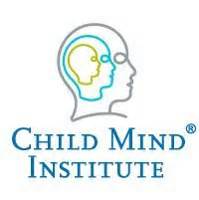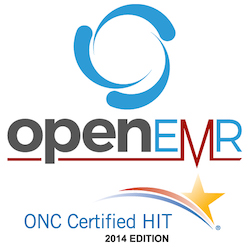News Clips
Red Hat Unveils Industry’s First Production-Ready Open Source Hyperconverged Infrastructure
 Red Hat, Inc., the world's leading provider of open source solutions, today introduced Red Hat Hyperconverged Infrastructure, the industry’s first production-ready fully open source hyperconverged infrastructure (HCI) solution. By combining innovative virtualization and storage technologies with a stable, proven operating platform, Red Hat Hyperconverged Infrastructure is designed to help enterprises to bring datacenter capabilities into locations with limited space, such as branch offices and other remote facilities...
Red Hat, Inc., the world's leading provider of open source solutions, today introduced Red Hat Hyperconverged Infrastructure, the industry’s first production-ready fully open source hyperconverged infrastructure (HCI) solution. By combining innovative virtualization and storage technologies with a stable, proven operating platform, Red Hat Hyperconverged Infrastructure is designed to help enterprises to bring datacenter capabilities into locations with limited space, such as branch offices and other remote facilities...
- Login to post comments
VA Secretary to Congress: We Don't Know What the Cerner EHR Will Cost
Secretary of Veterans Affairs David Shulkin, MD, told a Senate subcommittee on Wednesday he does not yet know the cost for the new Cerner electronic health record that the VA plans to purchase. While Sen. Brian Schatz, D-Hawaii, said he supports the decision to replace the VA’s existing Vista EHR, he worried the cost was not part of the 2018 budget. “I understand you don’t want to just pick a number,” Schatz told Shulkin. “But it’s not zero. And we’re about to mark this bill up and it’s difficult to do a markup when, lacking information, we’re expected to sort of book it at zero”...
- Login to post comments
Is the American Heart Association a Terrorist Organization?
 A few days ago, the AHA stole the attention of headlines across the globe with a report that sounded like it was straight out of the 1990s: Dietary Fats and Cardiovascular Disease: A Presidential Advisory From the American Heart Association. In this report, the AHA doubled down on their attacks against coconut oil and saturated fat. Frank Sacks, lead author on the report, reportedly said that he has no idea why people think coconut oil is healthy...
A few days ago, the AHA stole the attention of headlines across the globe with a report that sounded like it was straight out of the 1990s: Dietary Fats and Cardiovascular Disease: A Presidential Advisory From the American Heart Association. In this report, the AHA doubled down on their attacks against coconut oil and saturated fat. Frank Sacks, lead author on the report, reportedly said that he has no idea why people think coconut oil is healthy...
- Login to post comments
EHNAC Applauds Health Care Industry Cybersecurity (HCIC) Task Force Report and Recommendations
 The Electronic Healthcare Network Accreditation Commission (EHNAC), a non-profit standards development organization and accrediting body for organizations that electronically exchange healthcare data, today announced its support of the Health Care Industry Cybersecurity (HCIC) Task Force’s June 2 report to Congress titled Report on Improving Cybersecurity in the Health Care Industry and the recommendations therein. The Health Care Industry Cybersecurity (HCIC) Task Force was established by the Department of Health and Human Services (HHS) in March 2016 per the Cybersecurity Act of 2015, Section 405(c). EHNAC applauds HHS and the expert panel of subject matter experts on the HCIC Task Force who contributed to develop these recommendations to strengthen the privacy and security of U.S. healthcare data...
The Electronic Healthcare Network Accreditation Commission (EHNAC), a non-profit standards development organization and accrediting body for organizations that electronically exchange healthcare data, today announced its support of the Health Care Industry Cybersecurity (HCIC) Task Force’s June 2 report to Congress titled Report on Improving Cybersecurity in the Health Care Industry and the recommendations therein. The Health Care Industry Cybersecurity (HCIC) Task Force was established by the Department of Health and Human Services (HHS) in March 2016 per the Cybersecurity Act of 2015, Section 405(c). EHNAC applauds HHS and the expert panel of subject matter experts on the HCIC Task Force who contributed to develop these recommendations to strengthen the privacy and security of U.S. healthcare data...
- Login to post comments
Why EHR Interoperability Requires Health IT Infrastructure
Healthcare organizations are still challenged by EHR interoperability, and are seeking health IT infrastructure tools to ensure data is accurately, efficiently, and securely shared. Eagle Physicians and Associates and Cone Health announced the successful exchange between the eClinicalWorks cloud-based EHR and the Epic EHR for improved EHR interoperability among multiple locations and health systems. Eagle Physicians needed a way to provide better quality care to patients as those individuals move among locations...
- Login to post comments
Stanford Medicine Launches Health Care Trends Report
 Stanford Medicine today published its inaugural Health Trends Report, a comprehensive review and analysis of existing health care research and open-source data, combined with insights from Stanford faculty and external health care experts, on the current and emerging trends facing the health care sector. The report, which will be published annually, found the promise and challenge of big data to be the most important forces driving change and improvements across health care...
Stanford Medicine today published its inaugural Health Trends Report, a comprehensive review and analysis of existing health care research and open-source data, combined with insights from Stanford faculty and external health care experts, on the current and emerging trends facing the health care sector. The report, which will be published annually, found the promise and challenge of big data to be the most important forces driving change and improvements across health care...
- Login to post comments
How Did Health Care Get to Be Such a Mess?
The problem with American health care is not the care. It’s the insurance. Both parties have stumbled to enact comprehensive health care reform because they insist on patching up a rickety, malfunctioning model. The insurance company model drives up prices and fragments care. Rather than rejecting this jerry-built structure, the Democrats’ Obamacare legislation simply added a cracked support beam or two. The Republican bill will knock those out to focus on spackling other dilapidated parts of the system...
- Login to post comments
Last Mile: A Matter of Life and Death
 Access to essential medicines is not only about the development and cost of pharmaceuticals but also supply chain logistics. The "last mile" plays a particularly important (and challenging) role in low- and middle-income countries, such as Uganda. Industrial and systems engineering research reveals major disparities in access to essential medicines. Although Malaria accounts for 50% of a country's morbidity and mortality, some districts only have 50% of public health facilities with regular supplies of therapies...
Access to essential medicines is not only about the development and cost of pharmaceuticals but also supply chain logistics. The "last mile" plays a particularly important (and challenging) role in low- and middle-income countries, such as Uganda. Industrial and systems engineering research reveals major disparities in access to essential medicines. Although Malaria accounts for 50% of a country's morbidity and mortality, some districts only have 50% of public health facilities with regular supplies of therapies...
- Login to post comments
ONC, CMS to Take Part in Provider Data Accuracy Alliance
A multi-stakeholder alliance convened by CAQH will meet to discuss and develop a roadmap for improving provider data accuracy throughout the summer of 2017. Accurate provider information improves the efficiency of various fundamental processes in healthcare ranging from paying claims to procuring provider directories. The Provider Data Action Alliance comprises representatives from provider organizations, health information exchanges (HIEs), federal agencies, and health systems...
- Login to post comments
Apple Is Quietly Working on Turning Your iPhone into the One-Stop Shop for All Your Medical Info
Imagine turning to your iPhone for all your health and medical information — every doctor's visit, lab test result, prescription and other health information, all available in a snapshot on your phone and shared with your doctor on command. No more logging into hospital websites or having to call your previous doctor to get them to forward all that information to your new one. Apple is working on making that scenario a reality...
- Login to post comments
Child Mind Institute's Healthy Brain Network Releases Open Dataset
 The Child Mind Institute today announced the release of the first dataset from the groundbreaking Healthy Brain Network study, and the inauguration of the Healthy Brain Network Biobank. The study and the open access Biobank address the pressing need for a large, comprehensive dataset that researchers will use to leverage new technologies and develop tools for diagnosing and managing mental health and learning disorders...
The Child Mind Institute today announced the release of the first dataset from the groundbreaking Healthy Brain Network study, and the inauguration of the Healthy Brain Network Biobank. The study and the open access Biobank address the pressing need for a large, comprehensive dataset that researchers will use to leverage new technologies and develop tools for diagnosing and managing mental health and learning disorders...
- Login to post comments
Bacteria from Cystic Fibrosis Patient Could Help Thwart Antibiotic-Resistant TB
 The number of drug-resistant tuberculosis (TB) cases is rising globally. But a newly discovered natural antibiotic -- produced by bacteria from the lung infection in a cystic fibrosis patient -- could help fight these infections. Lab testing reported in the Journal of the American Chemical Society shows that the compound is active against multi-drug resistant strains. Starting with the famous first discovery of penicillin from mold, scientists have continued to search for natural sources of antibiotics. And as pathogens develop resistance to once-reliable medicines, the search has taken on a new urgency...
The number of drug-resistant tuberculosis (TB) cases is rising globally. But a newly discovered natural antibiotic -- produced by bacteria from the lung infection in a cystic fibrosis patient -- could help fight these infections. Lab testing reported in the Journal of the American Chemical Society shows that the compound is active against multi-drug resistant strains. Starting with the famous first discovery of penicillin from mold, scientists have continued to search for natural sources of antibiotics. And as pathogens develop resistance to once-reliable medicines, the search has taken on a new urgency...
- Login to post comments
OpenEMR Consortium Proposes Open Source EHR Solution to U.S. Coast Guard
 According to a recent Request for Information from the United States Coast Guard (USCG), the maritime branch of the U.S. Armed Forces is conducting market research of sources capable of providing a computerized, integrated Electronic Health Record solution for replacement of the USCG manual paper health records at 114 ashore sites (clinics and sick bays) and 62 afloat sick bays. The requested scope of the EHR by USCG is broad and includes primary care, urgent care, counseling, occupational health, and dental care.
According to a recent Request for Information from the United States Coast Guard (USCG), the maritime branch of the U.S. Armed Forces is conducting market research of sources capable of providing a computerized, integrated Electronic Health Record solution for replacement of the USCG manual paper health records at 114 ashore sites (clinics and sick bays) and 62 afloat sick bays. The requested scope of the EHR by USCG is broad and includes primary care, urgent care, counseling, occupational health, and dental care.
- Login to post comments
What Hospitals Can Learn from Airlines About Buying Equipment
For critically ill patients on breathing machines, a simple step drastically improves their survival chances by almost 10% — from 60% to 70%. It involves programming the machine to deliver enough life-sustaining breaths, but not so much that it damages their lungs by overinflating them. Given that this intervention could prevent more suffering than many wonder drugs, one would expect that there would be zero market for a breathing machine that didn’t make lung-preventive ventilation as easy as possible. But in health care, few things work as expected. Fewer than half of patients, and in some hospitals fewer than 20%, receive this life-saving intervention...
- Login to post comments
Condom Airborne Meds: 6 Ways Drones Could Change Health Care
 Drones have been used to deliver sunscreen to a conference in Palm Springs, Calif., and pizza to a family in New Zealand, but they’re also in the air for far more urgent purposes — such as saving lives. In fact, in some cases, drones could carry defibrillators to heart attack victims faster than an ambulance, according to a paper published Tuesday in the Journal of the American Medical Association. Researchers simulated emergency situations and found they could get automatic external defibrillators to the scene an average of 16 minutes faster by drone than by ambulance...
Drones have been used to deliver sunscreen to a conference in Palm Springs, Calif., and pizza to a family in New Zealand, but they’re also in the air for far more urgent purposes — such as saving lives. In fact, in some cases, drones could carry defibrillators to heart attack victims faster than an ambulance, according to a paper published Tuesday in the Journal of the American Medical Association. Researchers simulated emergency situations and found they could get automatic external defibrillators to the scene an average of 16 minutes faster by drone than by ambulance...
- Login to post comments